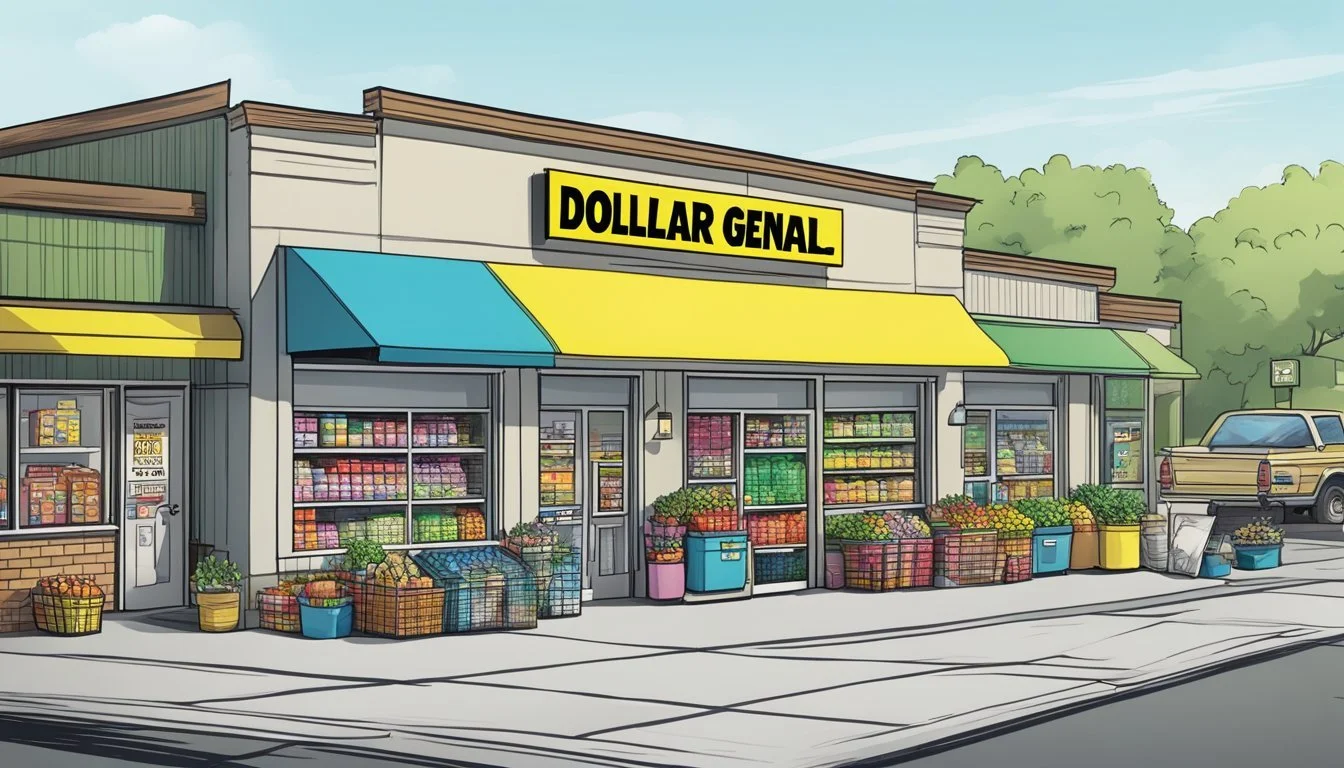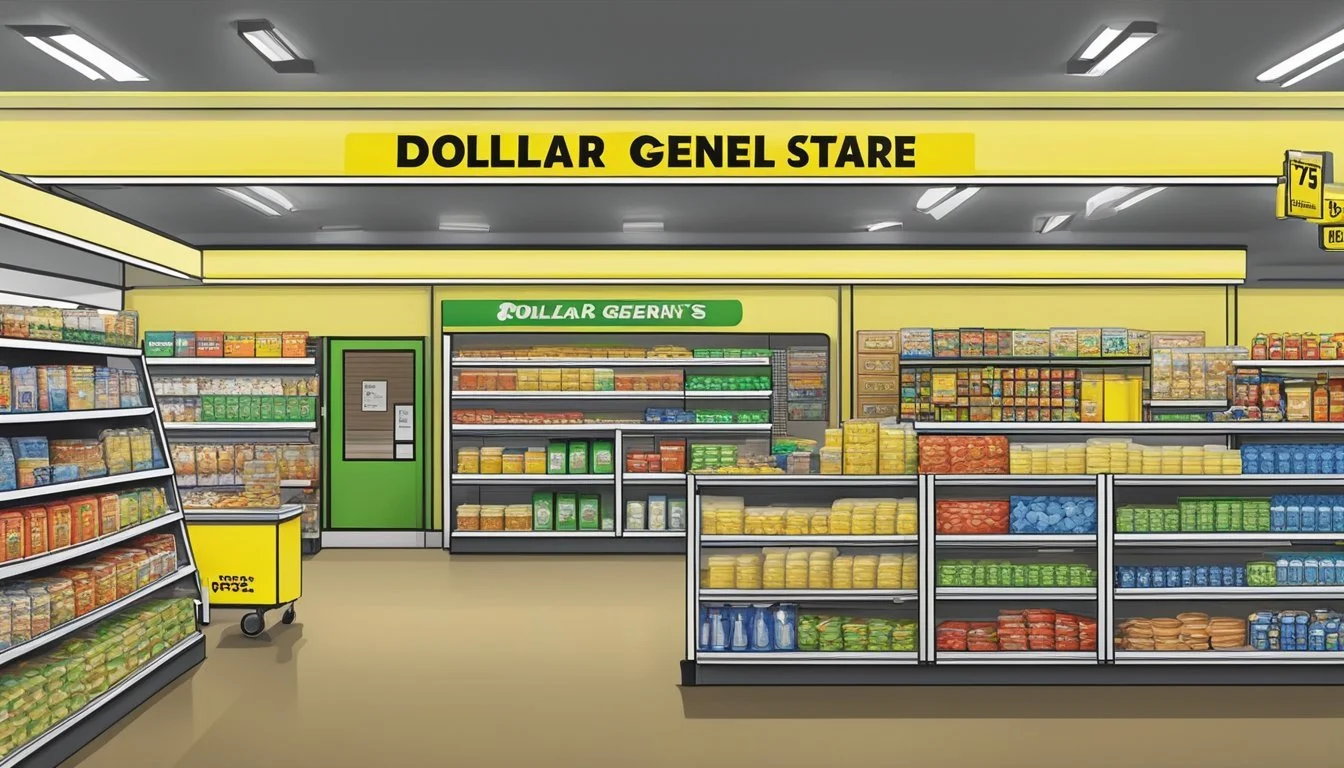Is Dollar General Cheaper Than Trader Joe's?
A price comparison of budget retailers
When comparing grocery prices, shoppers often wonder how Dollar General stacks up against popular chains like Trader Joe's. While both stores aim to provide value, their pricing strategies and product offerings differ significantly.
Dollar General typically offers lower prices on many basic grocery items compared to Trader Joe's. This is largely due to Dollar General's focus on budget-friendly options and private label products. The chain specializes in providing everyday essentials at discounted rates.
Trader Joe's, on the other hand, is known for its unique and often organic product selection. While it may not be the cheapest option for staple items, Trader Joe's offers competitive prices on specialty foods and tends to have lower prices than traditional supermarkets for many products. The store's private label strategy allows them to keep costs down while maintaining quality.
Overview of Dollar General and Trader Joe's
Dollar General and Trader Joe's represent distinct approaches to retail, with differing product offerings, target markets, and brand identities. Their contrasting strategies cater to different consumer needs and preferences across the United States.
Store Brands and Reputation
Dollar General focuses on offering low-priced goods through its private-label brands. These products cover everyday essentials and household items. The company's reputation centers on affordability and convenience for budget-conscious shoppers.
Trader Joe's, in contrast, has built a strong reputation for its unique private-label products. Many customers develop a cult following for specific Trader Joe's items. The chain is known for its friendly staff, quirky store atmosphere, and focus on natural and organic options.
Both retailers prioritize their store brands, but Trader Joe's has achieved a more upscale image. Its products often receive praise for quality and innovation, while Dollar General's offerings are valued primarily for their low cost.
Product Selection and Specialty Items
Dollar General's inventory consists mainly of basic household goods, packaged foods, and personal care items. The store aims to provide essential products at competitive prices.
Trader Joe's offers a curated selection of groceries, including many specialty and gourmet items. The chain is known for:
Unique snacks and frozen meals
International cuisine influences
Affordable wines and craft beers
Seasonal product rotations
While Dollar General stocks some food items, its selection is limited compared to Trader Joe's full grocery store model. Trader Joe's frequently introduces new products, keeping its inventory fresh and exciting for regular shoppers.
Geographical Presence and Expansion
Dollar General has a widespread presence across the United States, with thousands of stores in rural and suburban areas. The company continues to expand rapidly, often targeting regions with limited retail options.
Trader Joe's operates as a regional chain with a growing national footprint. It has a strong presence in urban and suburban areas, particularly in states like California and New York. The company's expansion has been more measured, focusing on carefully selected locations.
Dollar General stores are typically smaller and found in a variety of settings, including strip malls and standalone buildings. Trader Joe's stores are often located in more affluent neighborhoods and shopping centers.
Both chains continue to grow, with Dollar General aiming for widespread coverage and Trader Joe's targeting specific markets. Trader Joe's has recently expanded into new territories like Florida, broadening its reach while maintaining its distinct brand identity.
Price Comparison and Affordability
Dollar General and Trader Joe's employ distinct pricing strategies that impact their overall affordability. Both stores offer competitive prices on various grocery items, but the value proposition differs based on product selection and quality.
General Pricing Strategies
Dollar General focuses on providing everyday low prices across a wide range of products. The store aims to keep costs down by offering a mix of national brands and private label items. Their strategy often involves smaller package sizes to maintain lower price points.
Trader Joe's takes a different approach. They emphasize unique, often organic products at competitive prices. The store achieves this by cutting out middlemen and dealing directly with suppliers. Trader Joe's also relies heavily on private label products, allowing them to control costs and quality.
Both stores strive to offer value, but Dollar General targets budget-conscious shoppers while Trader Joe's appeals to those seeking quality at reasonable prices.
Comparison of Basic Grocery Items
When comparing basic grocery items, Dollar General often comes out as the cheaper option. Staples like milk, bread, and eggs typically cost less at Dollar General than at Trader Joe's.
For example:
Milk (1 gallon): Dollar General $2.95, Trader Joe's $3.29
Bread (white, 20 oz): Dollar General $1.85, Trader Joe's $2.49
Eggs (dozen, large): Dollar General $2.25, Trader Joe's $2.99
However, Trader Joe's can be more competitive on certain items. Their bananas, for instance, are often priced lower than Dollar General's.
It's important to note that product quality and sourcing may differ between the two stores, which can impact price comparisons.
Analyzing the Price of Organic Products
Organic products present a different scenario in the price comparison between Dollar General and Trader Joe's. Trader Joe's offers a much wider selection of organic items compared to Dollar General.
Trader Joe's organic products are often priced lower than similar items at mainstream supermarkets. Their direct sourcing and private label strategy allows them to offer organic options at competitive prices.
Dollar General's organic selection is limited, but they have been expanding their offerings. When available, organic items at Dollar General are typically priced lower than Trader Joe's equivalents.
For budget-conscious shoppers seeking organic options, Trader Joe's generally provides better value due to its wider selection and competitive pricing on organic products.
Assessment of Food Quality
Dollar General and Trader Joe's offer different quality levels across their food selections. Key differences emerge when examining meat, dairy, produce, and packaged goods at each retailer.
Meat and Dairy
Dollar General's meat and dairy options are limited and of lower quality compared to Trader Joe's. Trader Joe's provides a wider selection of organic and antibiotic-free meats. Their beef, chicken, and pork tend to be fresher and of higher grade.
Trader Joe's dairy section features organic milk, cage-free eggs, and artisanal cheeses. Dollar General stocks basic dairy items like milk and eggs, but the quality is typically lower.
Trader Joe's excels in specialty cheeses and yogurts, while Dollar General focuses on basic, budget-friendly options.
Produce and Fresh Items
Trader Joe's outperforms Dollar General in produce quality and variety. Trader Joe's offers a range of organic fruits and vegetables, often pre-packaged for convenience. Their produce is generally fresher and sourced from reputable farms.
Dollar General's produce selection is limited, with fewer organic options. The quality can be inconsistent, and the variety is narrow. Fresh herbs and pre-cut vegetables are rarely available at Dollar General.
Trader Joe's rotates seasonal produce, ensuring a diverse selection year-round. Dollar General's produce offerings remain relatively static.
Packaged Foods and Dry Goods
Both retailers offer a range of packaged foods and dry goods, but with notable differences in quality and variety. Trader Joe's specializes in unique, often healthier options with fewer preservatives and artificial ingredients.
Dollar General focuses on name-brand and generic staples at lower price points. Their selection includes more processed foods and fewer organic or specialty items.
Trader Joe's private label products are known for quality and innovative flavors. Dollar General's store brands prioritize affordability over premium ingredients.
Trader Joe's offers a wider range of international and gourmet items. Dollar General's selection caters more to basic pantry needs and quick meal solutions.
Shopping Experience Differences
Dollar General and Trader Joe's offer distinct shopping environments that cater to different customer needs and preferences. The layout, checkout process, and customer service approaches vary significantly between these two retailers.
Store Layout and Design
Dollar General stores typically feature a no-frills layout with basic shelving and minimal decor. Aisles are often narrow and packed with a wide variety of household items, groceries, and personal care products. The emphasis is on functionality rather than aesthetics.
Trader Joe's, in contrast, embraces a more inviting atmosphere. Stores are designed with a neighborhood grocery feel, featuring wooden shelving, playful signage, and themed decor that changes with the seasons. Product displays are carefully curated, highlighting unique and seasonal items.
Check-Out Process
At Dollar General, the checkout process is straightforward but can be slow during busy times. Many stores have limited registers open, which may lead to longer wait times. Self-checkout options are not commonly available.
Trader Joe's is known for its efficient checkout system. Multiple registers are typically open, and staff members are quick to direct customers to available lanes. The absence of self-checkout maintains a personal touch.
Customer Service and Support
Dollar General's customer service is generally basic. Staff members are available to assist with product locations or pricing inquiries, but personalized attention is limited.
Trader Joe's prides itself on exceptional customer service. Employees, known as "Crew Members," are trained to be knowledgeable about products and eager to assist. They often offer product recommendations and samples, creating a more engaging shopping experience.
Discounts and Savings Opportunities
Dollar General and Trader Joe's employ different strategies to offer value to customers. These include sales events, loyalty programs, and competitive pricing on store-brand items.
Seasonal Sales and Regular Discounts
Dollar General frequently runs seasonal sales and offers weekly discounts on various products. The retailer typically promotes these deals through in-store signage and digital flyers. Customers can find savings on household essentials, groceries, and seasonal items.
Trader Joe's, in contrast, rarely holds sales events. The company focuses on maintaining consistently low prices year-round. This approach means shoppers don't need to wait for special promotions to save money on their purchases.
Coupons and Loyalty Programs
Dollar General provides a digital coupon program through its mobile app. Customers can clip coupons for additional savings on top of regular prices. The retailer also offers a DG Digital Coupons program, allowing shoppers to load discounts directly to their account.
Trader Joe's does not offer coupons or operate a loyalty program. The company believes its everyday low prices provide sufficient value without the need for additional discounts or point systems.
Comparison of Store Brand Prices
Both retailers emphasize their store brands as a way to offer savings. Dollar General's private label products, such as Clover Valley and Good & Smart, are priced competitively against national brands. These items often cost less than similar products at other discount stores.
Trader Joe's is known for its extensive range of private label offerings. The majority of products in Trader Joe's stores are under their own brand name. These items are typically priced lower than comparable national brands found in traditional supermarkets.
Consumer Trends and Preferences
Shopper preferences and spending habits significantly influence the grocery landscape. Dollar General and Trader Joe's cater to distinct consumer segments, each with unique product offerings and pricing strategies.
Survey of Popular Products
At Dollar General, top-selling items include household essentials, snacks, and personal care products. Customers often seek budget-friendly options for everyday needs. Trader Joe's, on the other hand, attracts shoppers with its array of specialty foods, frozen meals, and organic produce.
Dollar General's private-label brands appeal to price-conscious consumers. Trader Joe's unique private-label products create a loyal following among health-conscious and adventurous eaters.
Patterns in Consumer Spending
Dollar General shoppers typically make frequent, small-basket purchases. These consumers prioritize immediate necessities and value convenience. The average grocery bill tends to be lower due to the focus on essential items.
Trader Joe's customers often spend more per trip but may shop less frequently. They are willing to pay premium prices for perceived higher quality and unique products. Trader Joe's shoppers often explore new flavors and cuisines, leading to varied spending patterns.
Economic conditions influence consumer behavior at both stores. During economic downturns, Dollar General may see increased traffic as shoppers seek to stretch their budgets. Trader Joe's resilience stems from its reputation for affordable gourmet and organic options.
Operational Efficiency and Supply Chain
Dollar General and Trader Joe's employ distinct strategies to optimize their operations and supply chains. These approaches significantly influence their pricing models and overall cost structures.
Vendor Relationships and Inventory Management
Dollar General focuses on maintaining strong relationships with vendors to secure favorable pricing. The company's expansive network of over 18,000 stores provides considerable bargaining power. Dollar General employs an EDLP (Everyday Low Price) model, which relies on efficient inventory management to minimize costs.
Trader Joe's takes a different approach. The retailer limits its product selection to around 4,000 items, compared to the 30,000+ found in typical supermarkets. This streamlined inventory allows Trader Joe's to build deeper relationships with fewer suppliers. The company often purchases directly from manufacturers, cutting out intermediaries.
Impact of Middleman Elimination
Both Dollar General and Trader Joe's aim to reduce costs by eliminating middlemen in their supply chains. Dollar General has invested in its own distribution centers, allowing for more direct control over inventory and logistics. This vertical integration helps lower operational expenses.
Trader Joe's takes middleman elimination a step further. By purchasing large quantities directly from producers, they can negotiate better prices. The company also develops many of its own private-label products, which account for about 80% of its stock. This strategy allows Trader Joe's to offer unique items at competitive prices while maintaining control over quality and costs.
Analysis of Other Market Competitors
Dollar General and Trader Joe's face competition from various retailers in the grocery and discount store sectors. These competitors range from major national chains to smaller niche players.
Comparison with Major Retailers
Walmart stands out as a key competitor, offering consistently low prices across a wide range of products. A CNET analysis found Walmart's store brand items to be 33% to 73% cheaper than Trader Joe's. However, Trader Joe's maintains competitive pricing on many items.
Aldi, known for its no-frills approach, often matches or beats Dollar General's prices on staple goods. Costco appeals to bulk buyers with its wholesale model. Kroger and Target compete through a mix of store brands and national labels.
Amazon's online presence and Whole Foods acquisition have shaken up the grocery landscape. Their prices tend to be higher than Dollar General but competitive with Trader Joe's on certain items.
Niche Market Players
Trader Joe's carves out a unique position with its curated selection of private-label products. Its typical store location serves a dense area with above-average income ($91,000 household) and education levels.
Stop & Shop, a regional chain in the Northeast, competes on price with both Dollar General and Trader Joe's. A recent comparison showed Trader Joe's beating Stop & Shop on price for most basic grocery items, including produce.
Dollar General aims for price-sensitive shoppers in rural and urban areas, often locating in food deserts. This strategy differentiates it from Trader Joe's more upscale positioning and larger competitors' suburban focus.
Concluding Remarks on Value and Shopping Choices
Dollar General and Trader Joe's offer distinct shopping experiences and value propositions. Each store caters to different consumer needs and preferences.
Dollar General focuses on providing everyday essentials at low prices. Its wide network of stores makes it accessible to many shoppers, especially in rural areas.
Trader Joe's emphasizes unique, high-quality products and a curated selection. While generally pricier than Dollar General, it offers specialty items and organic options not found elsewhere.
When considering value, shoppers should factor in their specific needs, budget, and shopping habits. Dollar General may be more cost-effective for basic household goods and pantry staples.
Trader Joe's can provide better value for those seeking specialty foods or organic produce. Its store brand products often offer competitive pricing compared to name brands at other grocers.
Savvy consumers may choose to split their shopping between both stores. This strategy allows them to maximize savings on essentials at Dollar General while enjoying Trader Joe's unique offerings.
Investing time in comparing prices and products can lead to significant long-term savings. Smart shopping choices involve balancing cost, quality, and personal preferences.










